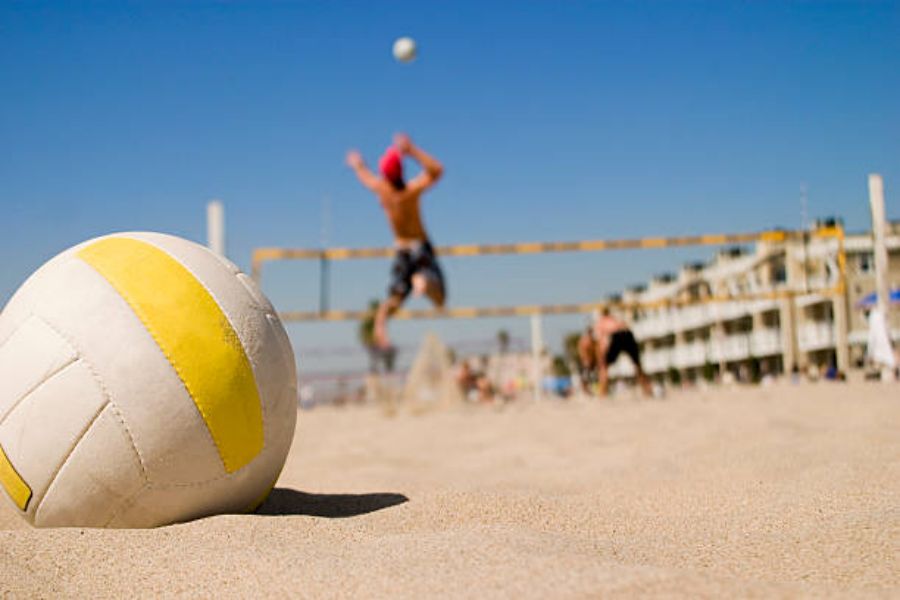Table of Contents

The World of Professional Volleyball: A Guide to the Exciting Sport
Professional volleyball is a fast-paced and thrilling sport that has gained immense popularity around the globe. With its high energy, strategic gameplay, and incredible athleticism, professional volleyball has captivated fans and athletes alike. In this article, we will explore the various aspects of professional volleyball, including its history, rules, top players, and major tournaments.
A Brief History of Professional Volleyball
Professional volleyball traces its roots back to the late 19th century when it was created as a recreational sport in the United States. Over time, it evolved into a competitive game and gained recognition worldwide. The International Volleyball Federation (FIVB) was established in 1947, paving the way for the development of professional volleyball on an international scale.
The Rules of Professional Volleyball
Professional volleyball is played by two teams of six players each, with the objective of scoring points by grounding the ball on the opponent's court. The game is played on a rectangular court divided by a net. Each team is allowed a maximum of three touches to return the ball over the net, with no player allowed to touch the ball twice consecutively (except for blocking). The first team to reach 25 points with a two-point advantage wins the set, and the match is typically played as a best-of-five sets.
Top Players in Professional Volleyball
Professional volleyball boasts a plethora of talented players who showcase their skills at the highest level. One of the most renowned players in the history of the sport is Karch Kiraly, a former American player who won Olympic gold medals in both indoor and beach volleyball. Another legendary figure is Giba, a Brazilian player who led his national team to three Olympic gold medals. Today, players like Matt Anderson, Zhu Ting, and Paola Egonu dominate the professional volleyball scene with their exceptional abilities.
Major Tournaments in Professional Volleyball
Professional volleyball features several prestigious tournaments that attract players and fans from all over the world. The Olympic Games, held every four years, is undoubtedly the pinnacle of the sport, showcasing the best teams and players on a global stage. Other major tournaments include the FIVB World Championships, FIVB Volleyball Nations League, and the FIVB World Cup. These tournaments provide an opportunity for teams to compete at the highest level and vie for the title of world champions.
The Growth of Professional Volleyball
Professional volleyball has experienced remarkable growth in recent years, both in terms of popularity and participation. The sport now has a massive following, with millions of fans tuning in to watch matches and support their favorite teams. The increased exposure and accessibility of professional volleyball through television broadcasts and online streaming platforms have contributed to its widespread appeal.
Training and Physical Demands in Professional Volleyball
Professional volleyball players undergo rigorous training to compete at the highest level. The sport requires a unique combination of strength, speed, agility, and coordination. Players engage in intensive physical conditioning, including strength training, cardiovascular exercises, and flexibility drills. Additionally, technical skills such as spiking, serving, setting, and blocking are honed through hours of practice and specialized coaching.
The Role of Coaches and Team Dynamics
Coaches play a crucial role in professional volleyball, overseeing the training, strategy development, and overall team dynamics. They analyze opponents' strengths and weaknesses, devise game plans, and make tactical decisions during matches. Moreover, team dynamics and communication are essential for success in professional volleyball. Players must work together seamlessly, relying on effective communication and trust to execute their strategies.
The Impact of Professional Volleyball on Society
Professional volleyball has a significant impact on society, inspiring and uniting people across different cultures and backgrounds. The sport promotes teamwork, discipline, and determination, instilling valuable life skills in both athletes and fans. Moreover, professional volleyball serves as a platform for gender equality, as both men's and women's competitions receive widespread recognition and support.
The Future of Professional Volleyball
The future of professional volleyball is incredibly promising, with the sport continuing to attract new fans and talent. The FIVB is dedicated to expanding the reach of the sport, promoting its inclusion in schools, communities, and grassroots programs worldwide. With constant advancements in technology and innovation, professional volleyball is poised to evolve and captivate audiences for generations to come.
